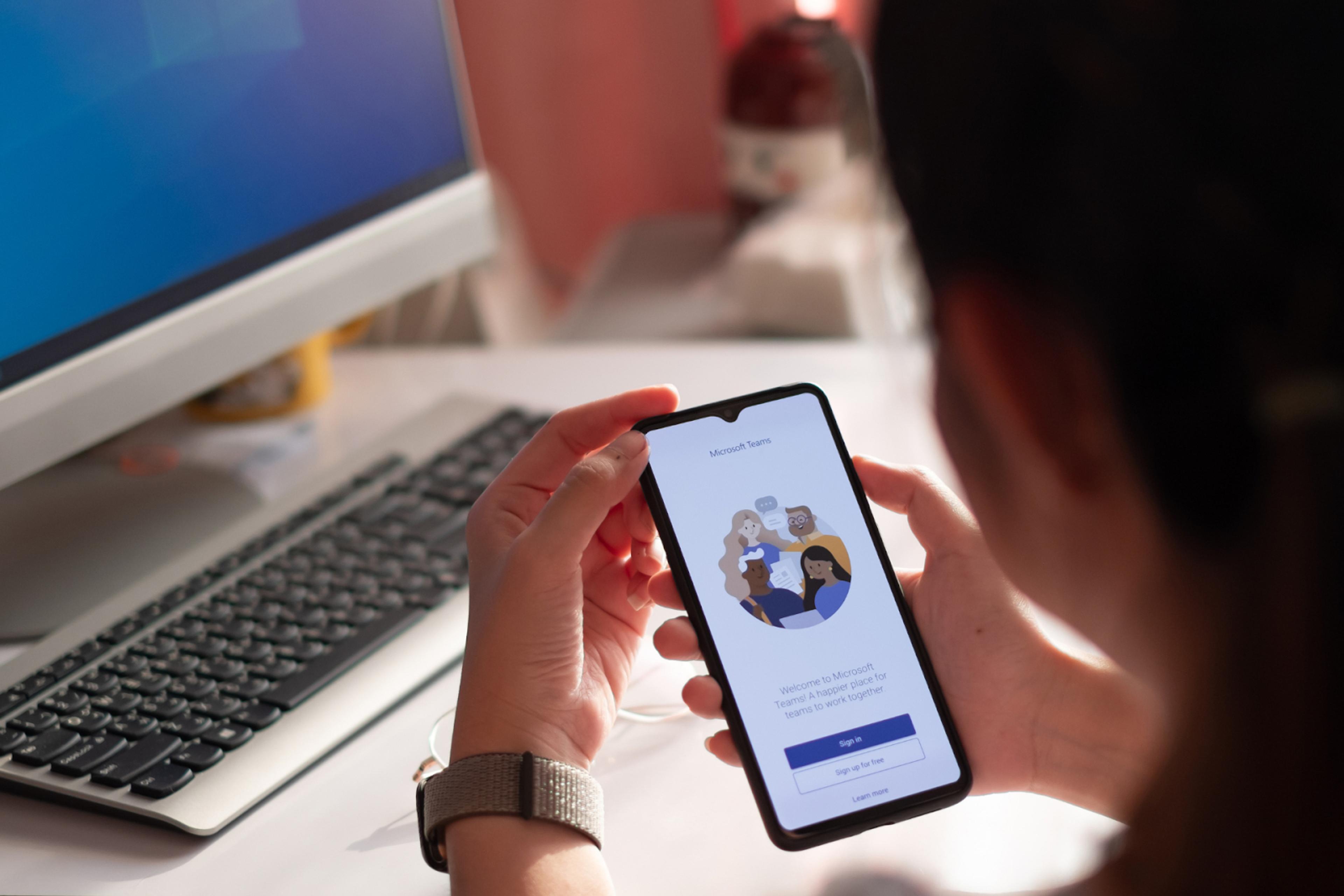Morgan Stanley Hirevue Questions (and How to Answer Them)
Getting a job at one of the most prestigious investment banks in the world marks a major career step for many finance professionals. This article will dive into Morgan Stanley’s HireVue interview questions and provide a guide on how to answer them.
Posted March 6, 2025

Table of Contents
Morgan Stanley is one of the leading investment banks globally, alongside Goldman Sachs and J.P. Morgan. Morgan Stanley’s HireVue interviews are a vital part of their hiring selection process to review a candidate's technical knowledge, behavioral competencies, and cultural fit through recorded video responses. This digital interview helps Morgan Stanley screen thousands of qualified candidates quickly— it goes beyond a simple screening tool as it opens doors to achieving career goals.
This detailed guide and expert tips for answering Morgan Stanley HireVue questions will give insights into handling behavioral questions well, looking professional on camera, and structuring answers within the time limit.
Common HireVue Questions
Morgan Stanley conducts HireVue interviews that include several behavioral questions. Candidates get 30 seconds to prepare and 1.5 minutes to record their answers. The platform offers one retry chance for each question. Here is a list of some commonly asked questions, and a full breakdown of the three most popular.
Behavioral
- Why Morgan Stanley?
- Why investment banking? (or Why wealth management?)
- Tell me about a time when...
- you faced and overcame a challenge
- you had a disagreement with a coworker
- you felt that something wasn't right
- How do you foster inclusive environments?
- If you don't land a role in investment banking, what alternative would you pursue?
- What perspective do you bring to the team?
- Why are you a good fit for this job?
Technical
- Pitch a stock
- How would you value a sport's team?
- Why would two companies in the same industry with the same growth and risk profile have different trading multiples?
- What business/finance/tech trends do you predict over the next 12 months?
Why are you interested in Morgan Stanley?
Morgan Stanley's behavioral interviews include this question about 20% of the time. The key to answering this question is to be specific and personal. Your answer to this question should be hyper-personalized to your background, interests, and values. A good litmus test is: if anyone else could say the same answer, it's not specific enough. Instead of "Why Morgan Stanley?", think about the question instead as, "Why Morgan Stanley for you?"
Example Answer
- I am eager to join Morgan Stanley because of its unparalleled reputation in the financial industry and its commitment to client success, innovation, and sustainability, which align perfectly with my own professional values and aspirations.
Firstly, Morgan Stanley’s dedication to providing tailored financial solutions is something I deeply admire. During my finance studies at the University of Chicago, I had the privilege of interning at a mid-sized investment firm where I worked on a project related to portfolio management. This experience taught me the importance of understanding client needs and market dynamics. Morgan Stanley’s innovative approach in these areas, particularly through its use of advanced analytics and global market insights, stands out in the industry and is a major motivator for my application.
Furthermore, I am particularly impressed by Morgan Stanley’s leadership in technology-driven finance. Your recent advancements in integrating AI and machine learning into investment strategies and risk management are groundbreaking. Given my background in finance and a minor in computer science, I am excited about the prospect of contributing to and growing with a firm that is pioneering these technologies.
Additionally, Morgan Stanley’s commitment to sustainability and community involvement resonates with my personal values. Your initiatives, like the Global Sustainable Finance Group, not only aim to achieve financial returns but also generate positive community impact. During my time volunteering with non-profit organizations focused on economic development, I saw firsthand the difference that sustainable investment practices can make. I am eager to be part of a company that prioritizes these principles at the core of its business strategy.
This is one of the most frequently asked questions in the IB interview process as a whole (along with “Why investment banking?”). You should have a good answer prepared for each firm you're interviewing with that is unique to that firm.
Read: How to Nail the Second Most Common Investment Banking Interview Question ("Why This Firm?")
Tell me about yourself
There are a few different classic forms this question may take - "Walk me through your resume", "Tell me about yourself", "Can you introduce yourself?", and "Give me a brief background about yourself." In any form, the best answers to this question are concise and tell a cohesive story. They are not a regurgitation of your resume. The interviewer likely has your interviewer on hand, they know what positions you've held and where you went to school.
Instead, think about presenting a before, now, and after. Where have you come from? Who are you? What have you done? Where are you going? And what is the line that connects all that together? This is a great way to make sure that there is a structure and that it's easily understood.
Example Answer
- Growing up in a family with a strong appreciation for finance and technology, I was naturally drawn to the complexities of the financial markets and the evolving role of technology within them. This interest led me to pursue a degree in finance at the University of Chicago, where I supplemented my studies with a minor in computer science. During my time at university, I not only honed my analytical skills but also embraced every opportunity to apply these skills in practical settings, such as my internship at a mid-sized investment firm in Chicago. There, I was deeply involved in developing a portfolio management tool that integrated real-time market data and predictive analytics, significantly enhancing our team's decision-making process.
Currently, I'm at a junction where I'm looking to transition from the theoretical and project-based work of my academic and internship experiences to a more dynamic and impactful role in the industry. My goal is to integrate my background in finance and passion for tech innovation to drive forward financial solutions that are not only efficient but also accessible and sustainable. Joining a forward-thinking and esteemed institution like Morgan Stanley would be a significant step in my career. I am especially drawn to your initiatives in sustainable finance and your leadership in integrating AI into financial strategies, which align with my vision of the future of the finance industry.
Ultimately, my aim is to be at the forefront of financial innovation, contributing to projects that not only increase financial inclusivity but also set new standards in the financial sector. I am eager to bring my analytical abilities, tech-savviness, and fresh perspectives to Morgan Stanley, helping to continue its legacy of excellence and innovation.
Tell me about a time...
When you get a "tell me about a time" question in a Morgan Stanley HireVue interview, the key is to deliver a response that not only demonstrates your qualifications but also highlights your problem-solving skills and ability to achieve results under pressure. This type of question is designed to assess your behavioral and situational handling capabilities through specific examples from your past experiences.
To prepare for this question, brainstorm 3-5 stories that you could flex into different scenarios. For example, maybe you worked on a project where you led a challenging initiative, had a disagreement with a colleague, and needed to work with lots of stakeholders, so you could use that example for a couple different variations of the question. You can't predict exactly what "tell me about a time..." questions you'll get, so having examples that you can adapt is key.
Last, it can be powerful to end this question with a brief reflection. What did you learn from the experience and how has it better prepared you for similar situations in the future?
Example Answer
- During my internship at a mid-sized investment firm in Chicago, I was tasked with leading a project to develop a portfolio management tool that integrated real-time market data with predictive analytics. However, shortly into the project, I encountered a significant challenge: the analytical model we initially developed was not aligning with real-time market fluctuations, which led to inconsistencies in our predictions and potential risks for investment strategies.
Recognizing the urgency of the situation, I initiated a comprehensive review of our data inputs and algorithms with my team. Through detailed analysis, I discovered that our model was overly reliant on short-term market trends, which made it susceptible to volatile market conditions. To address this, I proposed adjusting our algorithm to include a wider range of data points, incorporating both short-term and long-term market trends to balance the model's sensitivity to market changes. I collaborated closely with a senior data scientist to refine our approach, enhance our computational methodologies, and implement robust testing phases to ensure the tool’s accuracy and reliability.
The successful overhaul of the portfolio management tool not only resolved the immediate issue but also instilled a critical lesson about the importance of adaptability and thorough analysis in finance. The experience reinforced my belief in the power of data-driven decision-making and taught me the crucial role of long-term strategic thinking in achieving sustainable outcomes. Reflecting on this, I've learned to approach challenges not just as obstacles but as opportunities to innovate and drive meaningful improvements. These insights are integral to my professional development and are values I am excited to bring to my work at Morgan Stanley, where I know they will contribute to further success.
For more, read: How to Nail “Tell Me About a Time…” Interview Questions
How to Prepare for a Morgan Stanley HireVue Interview
A strategic approach with research, practice, and organized responses will help you ace Morgan Stanley's HireVue interview. The digital interview approximately takes 30 minutes to complete, with 3-5 questions.
1. Really research the company
Preparing thoroughly for your Morgan Stanley HireVue interview involves more than just understanding the position you're applying for; it requires a deep dive into the company's operations, culture, and recent developments. Start with Morgan Stanley's official website, particularly the 'About Us', 'Investor Relations', and 'Newsroom' sections to grasp their mission, strategic priorities, and latest news. Expand your research to include financial news platforms like Bloomberg, Financial Times, or The Wall Street Journal, where you can find detailed analysis on Morgan Stanley’s market performance and sector trends.
Dive deeper by exploring LinkedIn to gauge the company culture and employee experiences. Look at profiles of current and past employees, noting any skills or achievements highlighted, and read through posts made by Morgan Stanley to get a sense of their current projects and community involvement. Additionally, reviewing earnings call transcripts and analyst reports can provide insights into how market experts view the company’s financial health and future prospects.
Expert Tip: In preparation of any interview, one of the most beneficial things you can do is talk to people who have worked at the company, ideally someone who was in a similar role or on the same team. This is the best way to understand what the day-to-day will look like and formulate compelling, realistic, and unique answers to "Why this firm?", "Why this team?", and related questions.
2. Practice your video interviewing skills
HireVue interviews happen online, so you need specific ways to prepare. Morgan Stanley recommends practicing several times before the actual interview or during your free time, including recording practice sessions and seeking feedback on lighting, setting, and sound quality. You should focus on these key areas:
- Make sure your technical equipment works perfectly
- Get your lighting and background right
- Look directly at the camera when speaking
- Record yourself practicing and review it
- Ask others to watch and give feedback on your delivery
3. Prepare for mostly behavioral questions
Morgan Stanley has expanded their HireVue questions beyond the traditional 2-3 format since 2022. Most questions focus on behavioral scenarios, while technical questions remain nowhere near as common for entry-level positions. The STAR method (Situation, Task, Action, Result) works best especially when you have to structure your responses to behavioral questions. If there are technical questions, they will likely be higher-level. For example, "How would you think about valuing X?", "What is a sector of business that interests you?", etc.
4. Provide concise, structured answers
Each question allows 30 seconds of preparation time and 1.5 minutes for response, with one retry chance. Time management is significant in delivering effective answers. Provide clear and concise responses that showcase qualifications that work best within the time limit. Short, focused answers are preferred over lengthy explanations. You also don't need to use all the allocated time — a well-structured, thoughtful answer isn't necessarily the longest one.
Responses should come naturally instead of using memorized answers. This helps you stay authentic and shows your professional communication skills. A good balance between preparation and natural delivery ensures your answers feel genuine rather than rehearsed.
Tips for Succeeding in Your Morgan Stanley HireVue
A candidate's presentation and technical setup will define success for a Morgan Stanley HireVue by a lot. The virtual interview format needs a professional appearance and proper environmental factors that create the best possible impression.
Dress professionally
A professional appearance plays a significant role in virtual settings. Candidates should avoid loud colors and busy prints, opting instead for dark blue and other subtle solids that appear best on camera. Morgan Stanley expects a business professional dress code, and Morgan Stanley recruiters specifically emphasize the importance of a polished appearance. Your comfort matters during home interviews, but your professional image should match Morgan Stanley's corporate culture.
Choose a quiet, well-lit location
Creating the perfect interview environment is important for making a great impression. Start by choosing a quiet, private room free from distractions, with a clean, neutral background to maintain professionalism. Ensure your internet connection is strong and stable to avoid interruptions. Lighting plays a key role as well—opt for professional lighting by positioning table lamps about three feet from each side of your screen for balanced facial illumination. Avoid sitting in front of windows with direct sunlight or under overhead lighting that creates harsh shadows. A well-lit, distraction-free setup helps you stay focused and appear polished during your interview.
Look directly at your camera
Your virtual presence hinges on how you position your camera to create an engaging and professional appearance. Set the camera slightly above eye level, aligned with the top of your head, and tilt it downward for a flattering angle. Keep reminder notes near the camera at eye level to maintain a natural gaze and move or resize your screen image closer to the webcam to enhance eye contact. These simple adjustments help create a polished and confident impression.
Speak clearly and confidently
Morgan Stanley emphasizes authenticity in communication and encourages candidates to "be themselves" while maintaining a professional demeanor. The interview consists of 3-5 questions and takes approximately 30 minutes to complete. Here are the key speaking points candidates should consider:
- Share ideas with energy and a positive attitude
- Take natural pauses and avoid rushing through responses
- Stay authentic while keeping it professional
- Speak clearly with proper pacing (usually slower than you think you need to go)
Success comes when candidates create a comfortable setting that lets them focus on their responses. This means verifying technical elements like wifi strength and removing distractions before starting. Morgan Stanley seeks people who bring their authentic selves to work, so prepare well but keep responses natural and genuine.
Key Takeaways Dress Professionally: Stick to business attire in subtle, solid colors like dark blue to align with Morgan Stanley’s polished culture. Optimize Your Setup: Use a quiet, distraction-free space with professional lighting and a stable internet connection. Engage With the Camera: Position the camera slightly above eye level, maintain natural eye contact, and keep a flattering angle. Communicate Clearly: Speak confidently, pace yourself, and stay authentic while maintaining professionalism. Check Tech: Test your internet, prepare responses during the 30-second prep time, and re-record answers only if necessary.
What to Expect After Your Morgan Stanley HireVue
Morgan Stanley follows a well-laid-out recruitment process once candidates complete their HireVue interview. The HireVue is just the first interview; though it depends on the role, you can typically expect at least two – if not three to five – interviews after, usually some combination of technical and behavioral. The HireVue interview is one step beyond a resume check: it weeds out candidates and tries to identify those with the highest potential.
The Bottom Line
Success in the Morgan Stanley HireVue interview just requires you to focus on several key elements, from full company research to refined video presentation skills. The best candidates blend their deep knowledge of Morgan Stanley's values and operations with genuine responses. A strong foundation to move forward in the selection process comes from professional presentation, technical preparation, and well-laid-out answers within time limits.
As you approach the finish line of your investment banking preparation, don't leave your success hanging on the coat rack. Take the next step and get expert guidance from an investment banking coach who can help you fully prepare for your interviews.
Next, check out these resources:
- How to Answer the "Why Investment Banking?" Interview Question
- The Different Types of Buy-Side Firms–and How to Choose One
- How to Break Into Investment Banking–What to Do From Freshman to Senior Year
- The Best MBA Programs for Investment Banking
- The Top 20 Most Frequently Asked Investment Banking Technical Interview Questions
FAQs
What types of questions are typically asked in a Morgan Stanley HireVue interview?
- In a Morgan Stanley HireVue interview, candidates might be asked a variety of questions including their motivation for pursuing a career in finance, methods for staying informed about financial news, and to discuss ethical dilemmas or interesting financial transactions they have encountered.
How can I excel in a Morgan Stanley HireVue interview?
- To excel in a Morgan Stanley HireVue interview, it's crucial to maintain eye contact with the camera, articulate your own words clearly without unnecessary pauses, and keep your demeanor natural. Dressing professionally as if you were in an in-person interview is also essential.
Does Morgan Stanley give everyone a HireVue?
- No - the first step is usually a resume screen. This is sometimes followed by an online game assessment, then the HireVue. Those who pass that will move onto interviews with humans.
What are some common behavioral questions asked in Morgan Stanley's HireVue interviews?
- Common behavioral questions in Morgan Stanley's HireVue interviews often include inquiries about candidates' personal stories and past experiences, such as challenges they have faced and how they addressed them, as well as questions aimed at understanding the candidate's personality and work ethic.
How do you answer the question “Why Morgan Stanley?”
- Be specific and personal - your answer to "Why this firm?" should relate to your unique background, experiences, and aspirations. Highlight why Morgan Stanley is the best firm for you, not high-level platitudes about it being a worldwide leader in finance.
How does HireVue detect cheating?
- During the interview process, HireVue can tell whether the candidate is cheating by analyzing and monitoring the voice or the behavior like the eye and mouse movements. Meanwhile, its AI Algorithms will access responses for consistency and potential plagiarism.
How to ace a Morgan Stanley interview?
- Be yourself. Know your strengths and be able to talk to the areas you want to develop. Answer each question the best you can. We don't always expect candidates to have the right answer during an interview—we're interested in seeing how you work through a scenario.
What is Morgan Stanley in simple words?
- Morgan Stanley is a global leader in executing transactions in cash equity-related products for institutional clients around the world.
Can HireVue detect eye movement?
- As an AI-based technology, the HireVue platform can track and analyze your eye and mouse movements and assess your voice to identify potential instances of cheating.
Can you redo the answers on HireVue?
- For Morgan Stanley, you typically get one chance to restart your answer. Once an interview response has been submitted, however, it's not possible to return to that question in the interview. It may be possible for you to be sent a new interview link in order to retake the interview from the beginning, however, you would need to contact the hiring company with this request.
How does HireVue score you?
- The HireVue software (or whatever company is doing your interview) uses AI to analyze and score your answers. The AI algorithm evaluates major aspects of your response: Your speech, words, tone, pronunciation, voice inflection, pauses, etc.
How do I know if I passed the HireVue interview?
- To check the status of your interview, open your interview invitation email from the hiring company, and click on the Interview Code at the bottom of the email.
Can HireVue detect mouse movement?
- HireVue is not specifically designed to detect or assess mouse movements. Its core functionality revolves around video interviewing and candidate assessment through verbal responses and facial cues captured on camera.
Does HireVue look for keywords?
- The HireVue AI technology will analyze your non-verbal cues and your use of language and will look for the keywords that appear in the job description.











